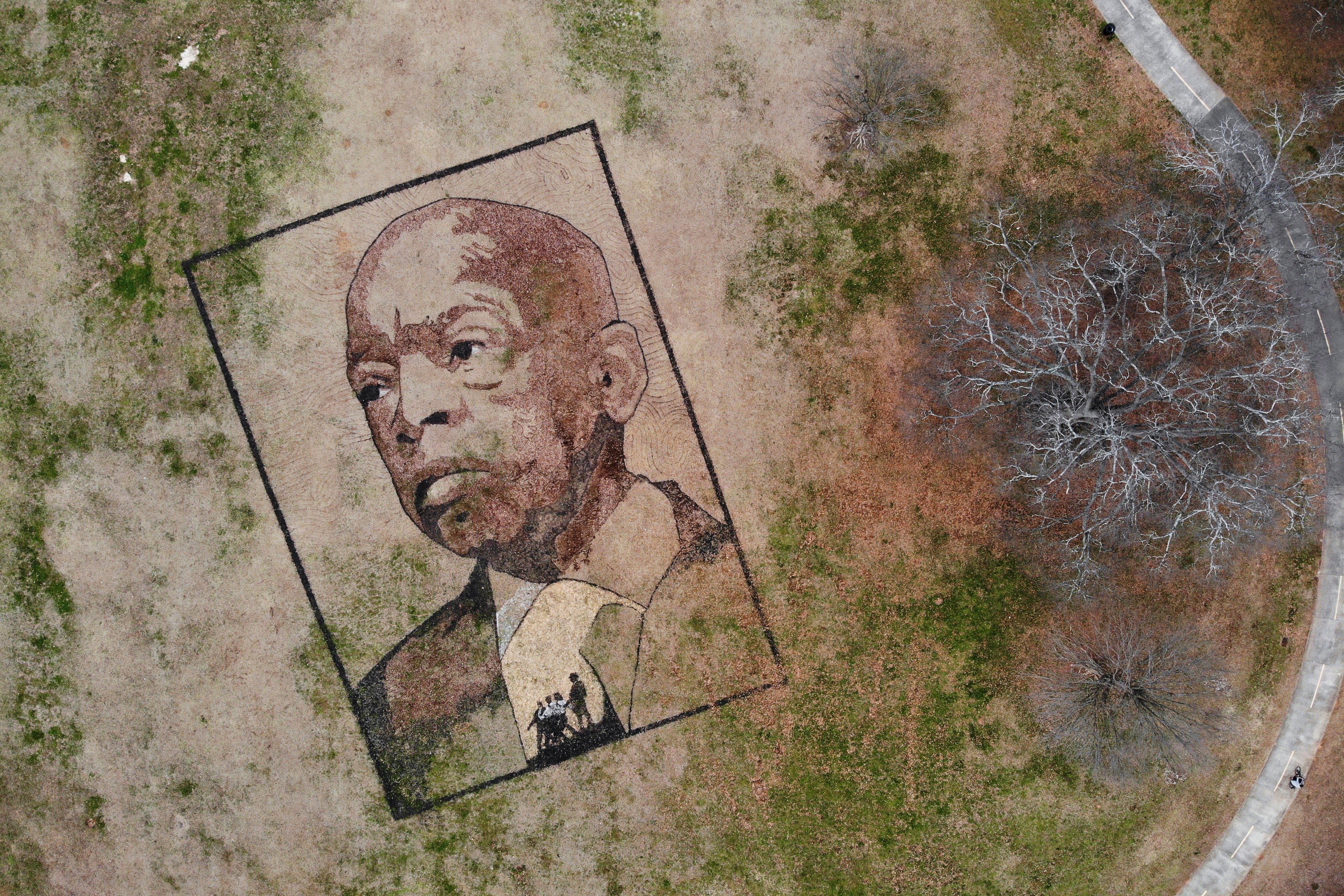Artist creates natural portrait of Lewis in Atlanta park
Freedom Park in Atlanta is doubling as the canvas for one of the city’s portraits of the late civil rights icon and congressman John Lewis

Freedom Park in Atlanta is currently doubling as the canvas for one of the city’s newest portraits of the late civil rights icon and longtime congressman John Lewis
Artist and progressive activist Stan Herd created the piece, one of his many so-called Earthworks, with grass, earth and other natural materials. It sits at the east end of John Lewis Freedom Parkway, just minutes from the Jimmy Carter Presidential Library and Museum.
“In general, I hope to bring attention to land, and the people who work the land, who value the landscape and Mother Earth. That is my family,” Herd told Atlanta’s Saporta Report in January. “I also have been involved, all my life, in lending art to causes and issues and thoughts and opinions that have changed the world. That is John Lewis.”
Herd has designed similar portraits around the world. He created earth-derived representations of President Joe Biden and Vice President Kamala Harris on a farm near Lawrence, Kansas, last year, while both were still on the campaign trail.
The temporary installations only last as long as nature allows, eventually fading away.
Lewis died in July at the age of 80 after battling pancreatic cancer. He served in the House for 33 years representing Georgia’s 5th Congressional District, which includes most of Atlanta.
The key civil rights player joined the movement as a young man in the 1960s. He helped found the Student Nonviolent Coordinating Committee and was among the original Freedom Riders who challenged segregated bus terminals in the South. Lewis was also the youngest person to speak at the March on Washington in 1963.
Most associated with the pursuit to secure and protect voting rights, Lewis led protesters in the 1965 Bloody Sunday march across the Edmund Pettus Bridge in Selma, Alabama, where he had his skull fractured by police, and was a driving force behind voting rights laws in the U.S. for decades.
Subscribe to Independent Premium to bookmark this article
Want to bookmark your favourite articles and stories to read or reference later? Start your Independent Premium subscription today.
